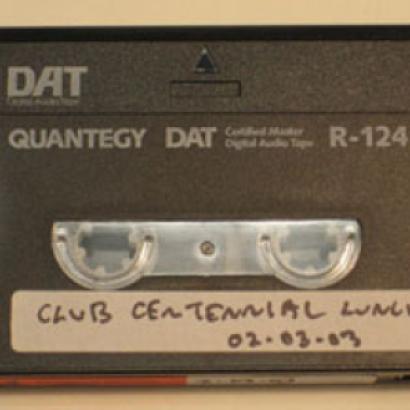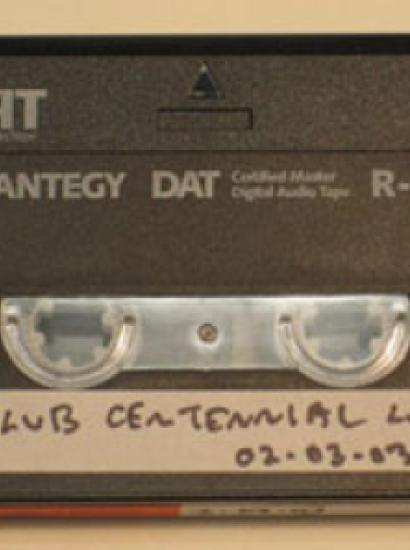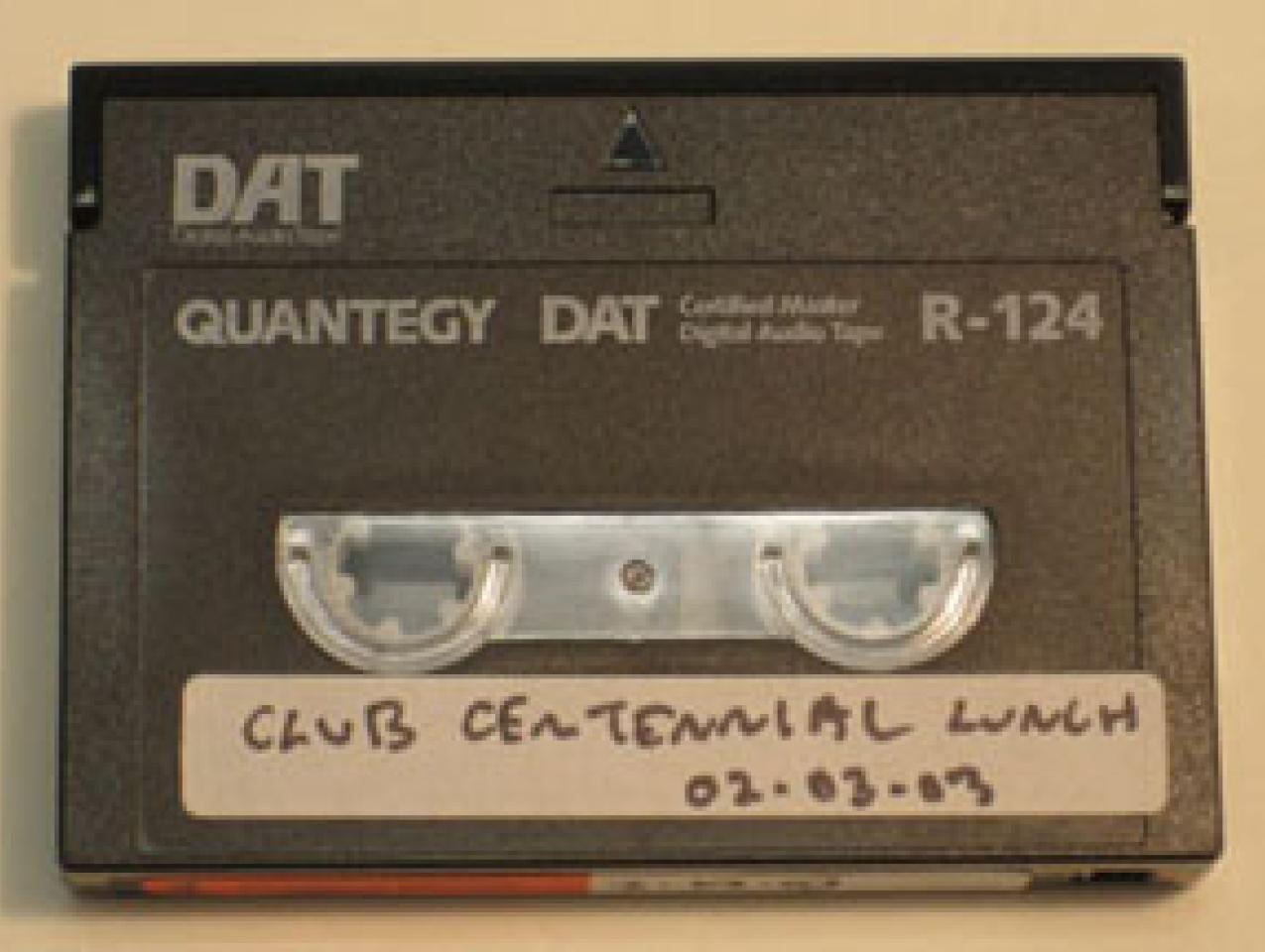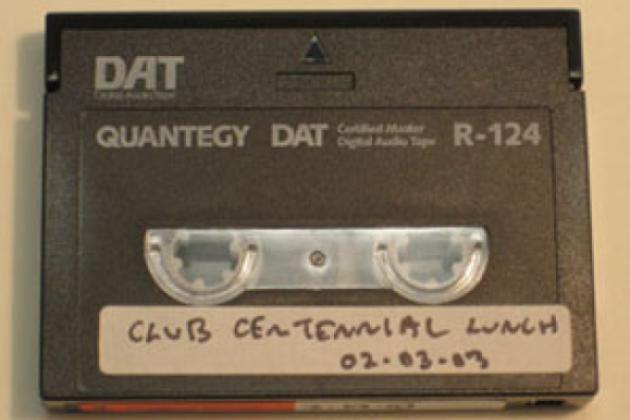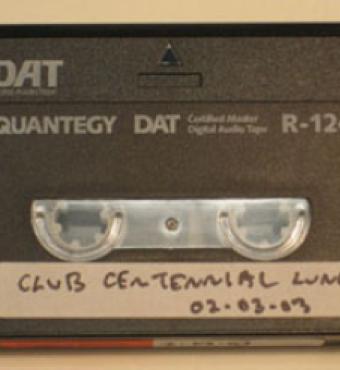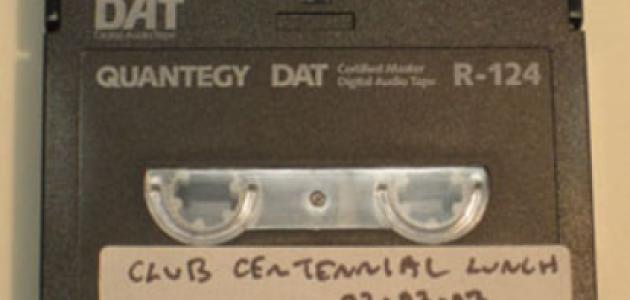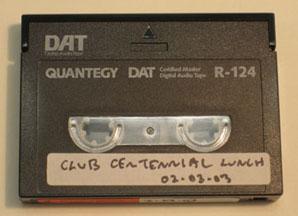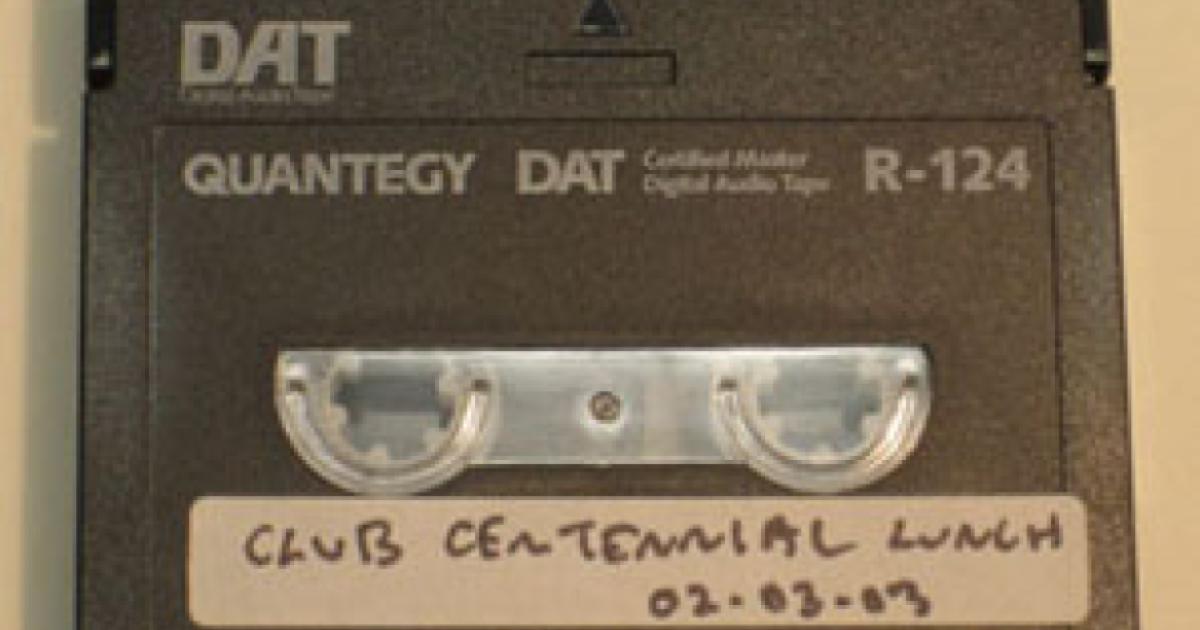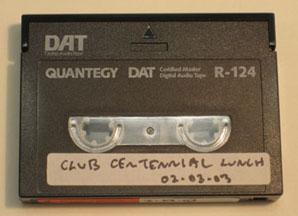
All digital audiotapes (DATs) of unique Commonwealth Club programs—that is, programs not also recorded on some other audio format—at the Hoover Institution Archives have been reformatted for preservation. DATs in the club’s records at Hoover date from 1990 to 2005. Although they represent relatively recent recordings, they are a high priority for preservation.
Designed as a consumer format, DATs store digital signals on audiotape, which is very thin and susceptible to tracking errors. As a result, recordings made on DATs can be flawed and may be unplayable after a short time. Furthermore, the format is obsolete, with no new DAT machines’ having been made since 2005. For these reasons, audio archivists recommend that DATs be reformatted as soon as possible. Archival best practice requires their transfer to a high-quality computer-based file format, a process performed daily in Hoover’s audio preservation lab.
Preservation reformatting continues with sound recordings in other formats used by the club. Its first sound recording was made on lacquer discs in 1944; since then, the club has used quarter-inch sound tape reels, compact sound cassettes, DATs, and CDs. Today the club records its programs directly to a computer-based file format.




